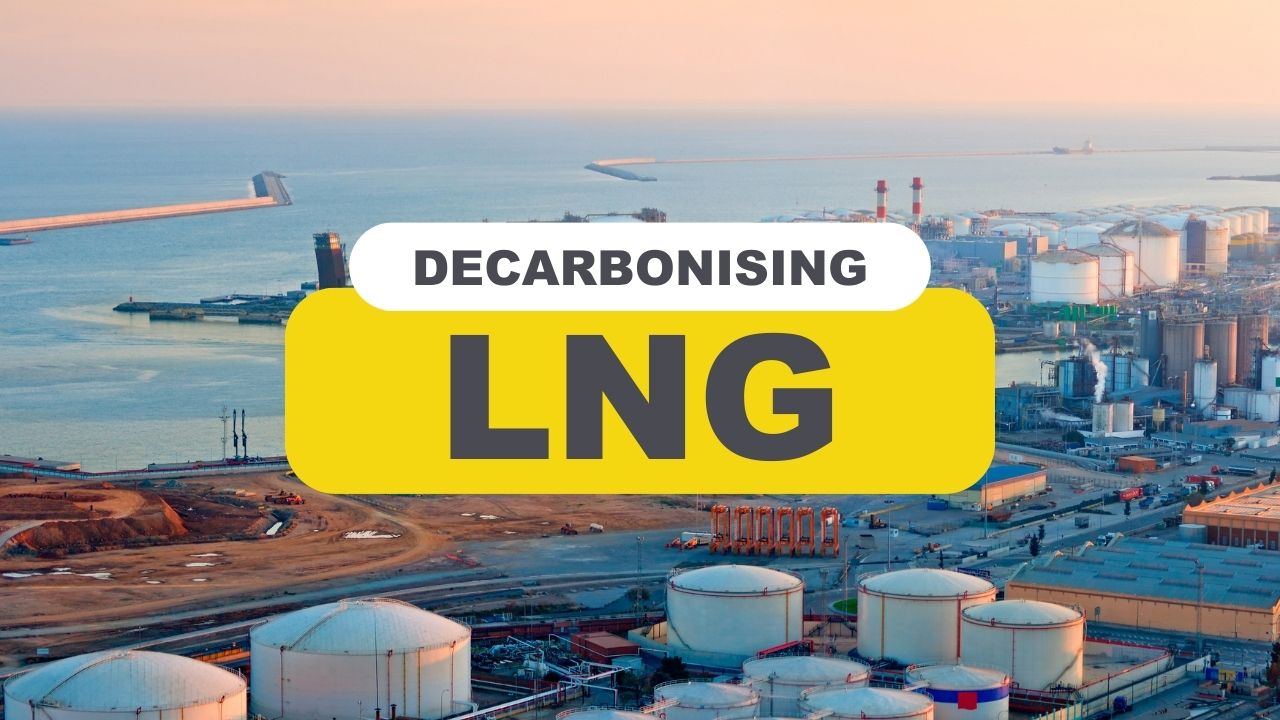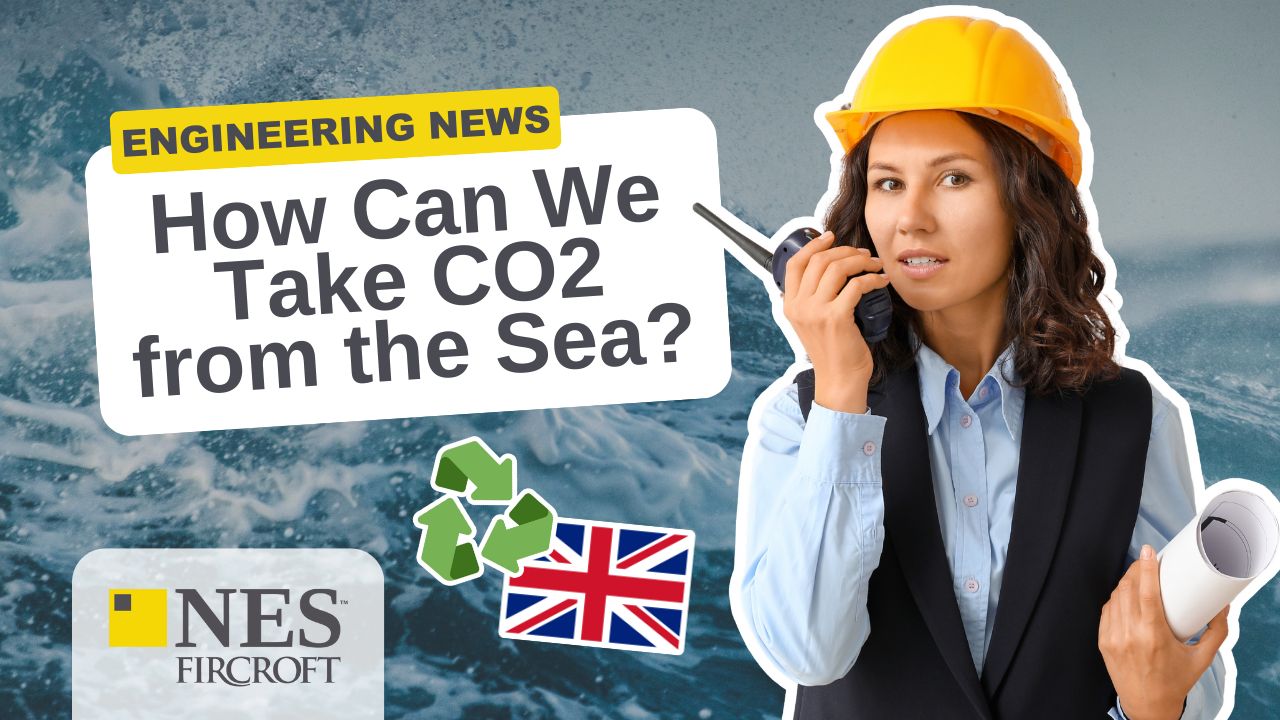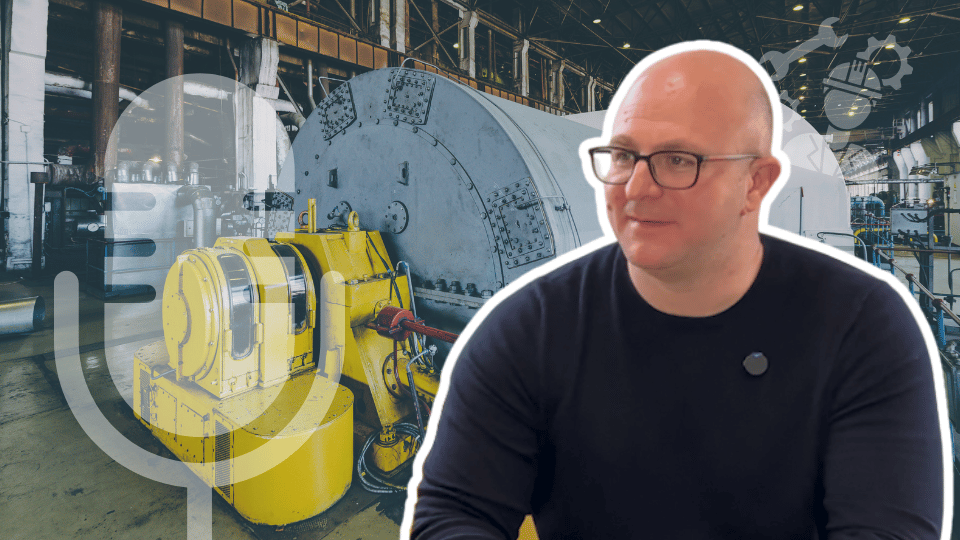Navigating the Challenges of Decarbonization in the LNG Industry
09 Jan, 20244 minutes, 55 secondsDecarbonising fossil fuels like natural gas and liquefied natural gas (LNG) plays a vital ro...

Decarbonising fossil fuels like natural gas and liquefied natural gas (LNG) plays a vital role in the energy transition. The need to reduce the adverse effects of climate change recently gained momentum following COP 28. There are now global agreements to become carbon neutral by 2050 and a renewed appetite for tackling decarbonisation. But how does this impact the LNG industry and the engineers that operate within it?
In this blog, we’ll explore the challenges and strategies for decarbonising the LNG industry. We will delve into the role of natural gas and LNG in the energy mix, examine the emissions associated with the LNG supply chain, and discuss how the industry can tackle decarbonisation.
The Role of Natural Gas and LNG in the Energy Transition
Natural gas and LNG have long been considered a "transition fuel" due to their lower carbon emissions than coal and oil. The combustion of natural gas produces approximately half the amount of CO2 emissions as coal. Additionally, natural gas has lower particulate emissions and fewer other pollutants, making it a cleaner choice for power generation and industrial applications.
Projections show that natural gas will play a significant role in meeting global energy demand in the coming decades. The International Energy Agency (IEA) estimates an average annual increase in natural gas demand of 1.7% between 2022 and 2024. Additionally, natural gas is expected to be the only fossil fuel where demand will continue to increase beyond 2030.

The Emission Supply Chain
Decarbonising the LNG supply chain requires a comprehensive understanding of the emissions associated with each stage of the value chain. The LNG supply chain can be divided into three main components: upstream, midstream, and downstream.
Upstream Emissions
The upstream phase involves natural gas extraction, production, transportation, and liquefaction. Methane emissions, a potent greenhouse gas, can arise during the extraction and production of natural gas. These emissions can occur through intentional venting, emergency releases, and fugitive emissions from accidental leaks. CO2 emissions are also generated during upstream activities, including the flaring of gas and the energy-intensive liquefaction process.
Midstream Emissions
The midstream phase, which encompasses the transportation of LNG, also contributes to emissions. LNG ships typically burn marine fuel oil or natural gas, producing CO2 emissions. Methane leakage, known as methane slip, can also occur during LNG transportation.
Downstream Emissions
The downstream phase of the LNG supply chain is responsible for most greenhouse gas emissions. When LNG is regasified and combusted, it releases CO2 and other emissions. The combustion of natural gas accounts for over 60% of the overall emissions in the LNG value chain; however, it's important to note that the emissions from natural gas combustion are still comparatively low compared to alternatives like coal.
Mitigation Efforts: Decarbonising the LNG Supply Chain
Decarbonising the LNG supply chain comes with challenges, but various strategies and technologies can help reduce emissions and promote sustainability. Some key mitigation efforts being explored in the industry are:
- Emission Monitoring, Reporting, and Verification
- Carbon-Neutral LNG
- Alternative Low or Zero-Emission Fuels
- Carbon Capture and Storage
Emission Monitoring, Reporting, and Verification
Establishing robust emission monitoring, reporting, and verification (MRV) systems is a crucial key to achieving decarbonisation. This would provide clear data on emissions across the entire LNG supply chain, enabling better understanding and management of the emissions footprint. However, there is no overarching MRV system, and limited data on emissions from the LNG supply chain is available. Efforts are underway to develop methodologies and reporting frameworks to address this gap, which will help the industry navigate decarbonisation.
Carbon-Neutral LNG
Companies worldwide are exploring the concept of "carbon-neutral" LNG, which involves reducing greenhouse gas emissions associated with the entire lifecycle of the LNG cargo, from production to combustion. Companies can achieve carbon-neutral status by reducing or offsetting emissions through verified emission reduction projects. Several companies have already sold carbon-neutral LNG cargoes, demonstrating the feasibility of this approach. However, scalability remains a challenge due to the limited size and cost of the offset market.
Carbon Capture and Storage
Carbon capture and storage (CCS) technologies offer a way to capture and store CO2 emissions from natural gas production, liquefaction, and combustion. CCS involves capturing the CO2 before it is emitted into the atmosphere and storing it underground in geological formations. By implementing CCS, companies can reduce their carbon footprint and contribute to decarbonisation efforts. However, the cost and scalability of CCS technologies remain challenges that must be addressed.
A Complex Task Ahead
Decarbonising the LNG industry is a complex task that requires efforts from everyone. While natural gas and LNG have been considered a bridge towards a low-carbon future, more can be done to get the industry closer to net zero.
The industry must prioritise emission monitoring, develop robust MRV systems, and adopt mitigation strategies such as carbon-neutral LNG. Additionally, continued technological advancements like CCS and hydrogen production will be crucial in decarbonising the LNG supply chain.
By taking proactive measures to reduce emissions and promote sustainability, the LNG industry can successfully navigate the energy transition and contribute to a more sustainable, low-carbon energy future.
Take the Next Step in Your Career
The demand for skilled engineers working in LNG is as high as ever. Companies require engineers to research, design and construct the future of the industry.
NES Fircroft’s expert recruitment teams source engineering and technical professionals for global roles with some of the biggest names in LNG. You can view all our open vacancies or register your CV with us today for free to take the next step in your engineering career.










